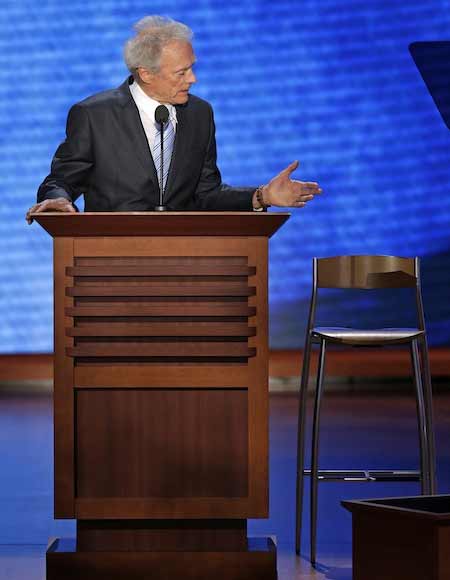In interviewing an imaginary Barack Obama at the Republican National Convention, Eastwood made his point while conserving thousands of gallons of gasoline and carbon emissions involved with flying President Obama and his entourage to Tampa. Think, too, of all the food, water and other waste that was avoided as well. Clint, we don’t necessarily agree with your politics or profanity, but we do like your resourcefulness! And for that, you get our vote.
Related Posts via Categories
2 Comments






I remember when I was getting my MBA at Columbia in the ‘70s, we were told that teleconferencing would replace the need for in-person meetings and conferences, and demand for business air travel, hotel accommodations, etc. would decline. It didn’t quite happen that way, since people still enjoyed taking business trips to get away from home.
But perhaps we are all more comfortable with the technology now (including webinars and skype), and less satisfied with the expense, inconvenience and general hassle of travel (especially getting groped and x-rayed at the airport). In my experience with at least one committee, it is not unusual for some members to dial up and participate in meetings by teleconference rather than make a long drive by car. Good for us, good for the environment. A few chairs may be empty, but unlike Clint Eastwood’s “interview,” the physically absent participants can engage fully in the conversation.
Have you made the switch to occasional (or more frequent) teleconferencing or telecommuting to help reduce your carbon footprint? Are your employers and/or colleagues facilitating or resisting?
Mr. Eastwood may have represented the sustainability community by using this chair to represent President Obama, but he wasted something else – everyone’s time.
It has always bothered me how these so-called “green” conferences happen all over the globe, featuring dignitaries and CEO’s from the four corners of our world, which add to air travel and probably a lot of un-recycled plastic water bottles after the events. Maybe we have to take a step backwards before moving forwards.